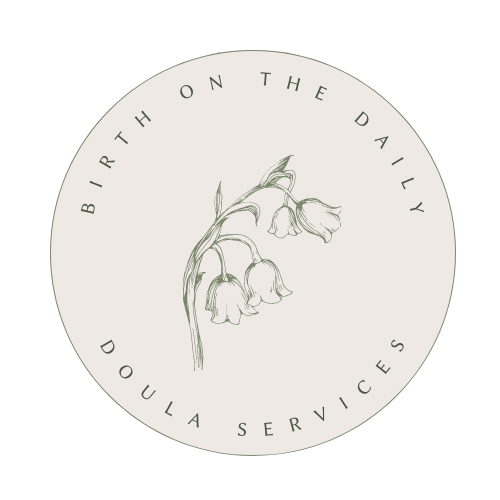Navigating Grief and Loss as a Doula: Supporting Clients and Ourselves
Hey friends, this one is for the doulas, birth workers, or even friends and families. This first year of birth work I have been through a lot, so much that at times I wasn’t sure what the future looked like for me and birth work. And to be honest, I still don’t, what I do know is that right now I want to help other birth workers navigate the hard times because it is hard on you too.
We are about to dive into a topic that isn’t really fun, it’s one I hope no one ever has to go through, but I know it is something that is inevitable. Birth and death are one and the same, you can’t have one without the other.
As doulas, we're all about empowering and supporting women through the incredible journey of pregnancy, birth, and postpartum. We often aren’t prepared for what happens if a baby doesn’t get to go home.
So, how do we navigate these emotions while still being pillars of strength and support? How do we move on with birth work without bringing fears and anxieties into other’s birth space? How do you continue to take care of not only your clients but also yourself when the truly unthinkable has happened?
Supporting Our Clients:
1. Creating a Safe Space: Our clients are going through an unthinkable amount of emotions, and they need a safe haven to express their feelings. Let them know that their pain and grief are valid and that you're there to listen without judgment.
2. Open Communication: Be honest and transparent about the fact that you're there for them not only in moments of joy but also during times of sorrow. Offer a listening ear and a shoulder to cry on. They may want to ask questions or walk through their birth story with you, be open and ready to answer.
3. Flexible Plans: Plans might need to shift due to unexpected circumstances. Help your clients navigate these changes by offering information, options, and emotional support. If you offer postpartum support they may no longer want that, they may want help packing away stuff, be a sounding board because they probably don’t even know what they want.
4. Resourceful Connections: If they're open to it, connect them with support groups or therapists who specialize in grief and loss. Remember, we're not here to replace professional help but to complement it. There are countless resources available for loss parents, most of my resources are local but if you are in need of some places to start looking please contact me via Instagram DM.
Honoring Your Own Feelings:
1. Give Yourself Permission: It's okay to feel sadness, frustration, or even confusion when you encounter grief and loss as a doula. Don't bottle up your emotions; acknowledge them, feel them, and release them.
2. Self-Care Rituals: Just as we encourage our clients to take care of themselves, let's practice what we preach. Engage in activities that recharge your emotional batteries, whether that's journaling, yoga, or spending time in nature.
3. Seek Support: We're all in this together. Reach out to fellow doulas or mentors who have experienced similar situations. Sharing your feelings can be incredibly therapeutic.
4. Time to Heal: Understand that processing grief takes time. Don't rush yourself through the healing process. Allow yourself to feel and heal at your own pace. If this means leaning on a backup to help you with upcoming births, that is okay!
Balancing Birth Work:
1. Know Your Limits: It's alright to step back temporarily if the emotional toll becomes too much. Your well-being matters just as much as your clients. In the end, taking a step back may very well be the best for your clients, the last thing you want is to bring any of your own fears or anxieties into their birth space. The first couple of births after a loss may be hard. You may have feelings come up that you thought you already worked through, but that’s okay, take a moment to recenter your breath and focus on what you know is true in that moment.
2. Debrief and Reflect: After a challenging birth experience or a loss, take time to debrief with a trusted friend or mentor. Reflect on what you learned and how you can continue to improve your support. Taking time to debrief the birth with the birth team can also be incredibly helpful. Walking through exactly what happened will not only help you heal but you can also help your client better understand if they ever come to you with questions about their birth.
3. Continuing Education: Consider attending workshops or courses on grief and loss. Equipping yourself with knowledge can help you navigate these situations more effectively.
Remember, you're a source of strength and compassion, but you're also human. Grief and loss are part of the journey, and facing them head-on, both for your clients and yourself, is a testament to your dedication and empathy. Keep supporting, keep learning, and keep healing. If you are going through any of this and need someone to talk to I’m always available, just DM @birthonthedaily on Instagram
With love,
Hannah
